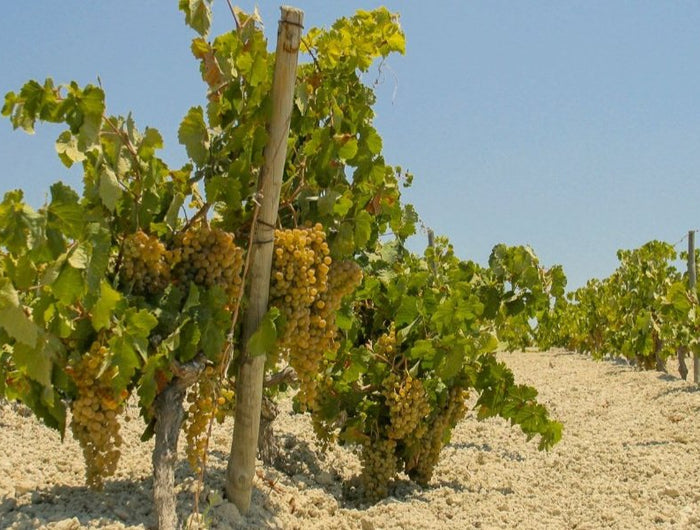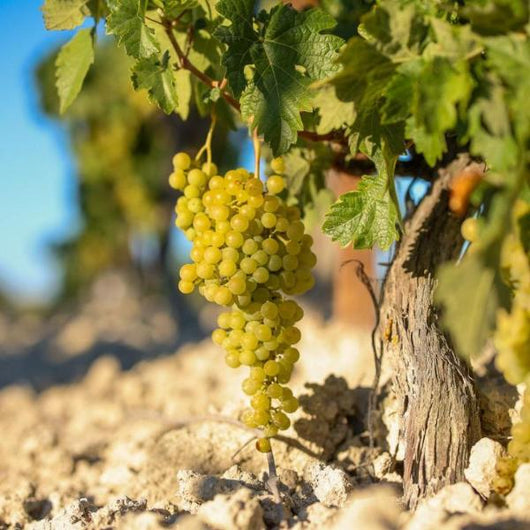

Palomino
The Palomino grape is native to Spain and is particularly known for its essential role in the production of sherry wines. It has been cultivated in the Jerez region for over 300 years, establishing itself as the main variety used for fortified wines such as Fino, Manzanilla, Amontillado and Oloroso.
Palomino is characterized by its large, compact bunches, with medium-sized grapes, thin skin and neutral flavor. This neutrality allows the wines to faithfully reflect the characteristics of the soil, especially the albariza soils in Jerez, which are highly porous and rich in calcium carbonate.
As for its history, although viticulture in the Iberian Peninsula dates back more than 3,000 years, the Palomino grape has been specifically cultivated in Jerez for the last 300 years. Before its dominance, the region had a greater variety of strains, but Palomino established itself due to its adaptability and its ideal oenological qualities for fortified wines.
Recently, Vinos de Pasto have emerged as an interesting category within the Jerez region. These still wines, made primarily from Palomino, stand out for their freshness and minerality, faithfully reflecting the albariza terroir. Flequi Berrutti is a notable winemaker who has worked with the Palomino grape, innovating in its cultivation and vinification, and highlighting its potential to produce high-quality and sustainable wines.
We want to make sure you enjoy our wines responsibly. Please confirm that you are at least 18 years old to enter Vinnatura. By entering our store, you agree to our Terms of Service .
You are not old enough to visit the store yet.